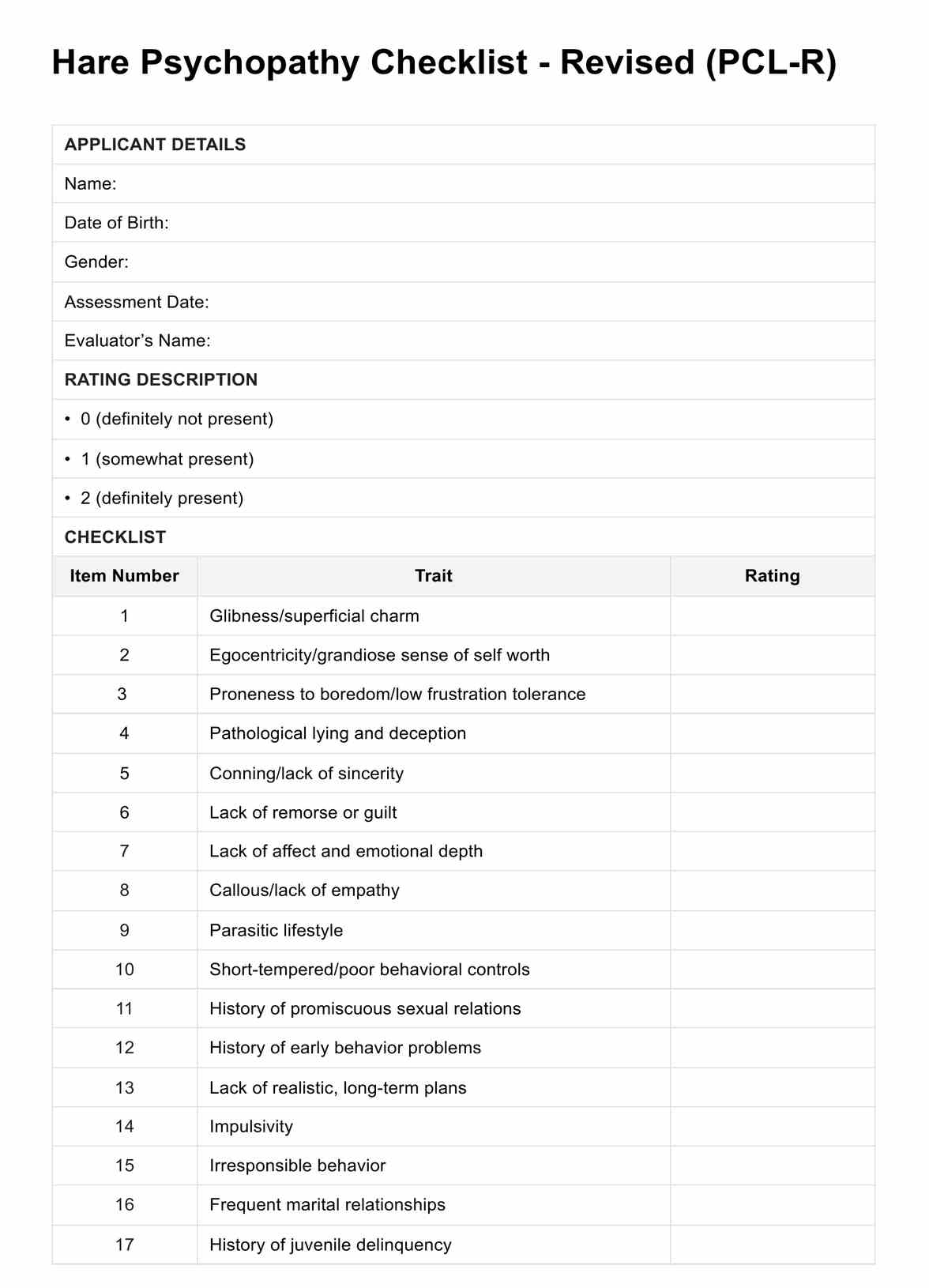The key symptoms of psychopathy include a lack of empathy and remorse, shallow emotions, impulsivity, irresponsibility, pathological lying, manipulation, and a disregard for the rights and feelings of others. Individuals with psychopathic traits often exhibit antisocial behavior, criminal versatility, and a parasitic lifestyle. However, not all individuals with psychopathic tendencies engage in criminal activities.

Hare Psychopathy Checklist - Revised
Explore the Hare Psychopathy Checklist-Revised to evaluate psychopathic traits and behaviors among clients. Download your free PDF here.
Hare Psychopathy Checklist - Revised Template
Commonly asked questions
Psychopaths are not typically "triggered" in the same way as those with other mental health conditions. Their lack of empathy, remorse, and emotional depth is a core part of their personality disorder. However, certain situations or perceived slights may prompt them to react with aggression, manipulation, or other antisocial behaviors in pursuit of their own interests or gratification.
Yes, the Hare Psychopathy Checklist-Revised (PCL-R) is still widely used as a psychological assessment tool for measuring psychopathic traits and behaviors. It is considered one of the leading instruments internationally for the assessment of psychopathy. It is used in various settings, including institutional, detention, and community correctional facilities, forensic psychiatric hospitals, and pre-trial evaluations.
EHR and practice management software
Get started for free
*No credit card required
Free
$0/usd
Unlimited clients
Telehealth
1GB of storage
Client portal text
Automated billing and online payments











